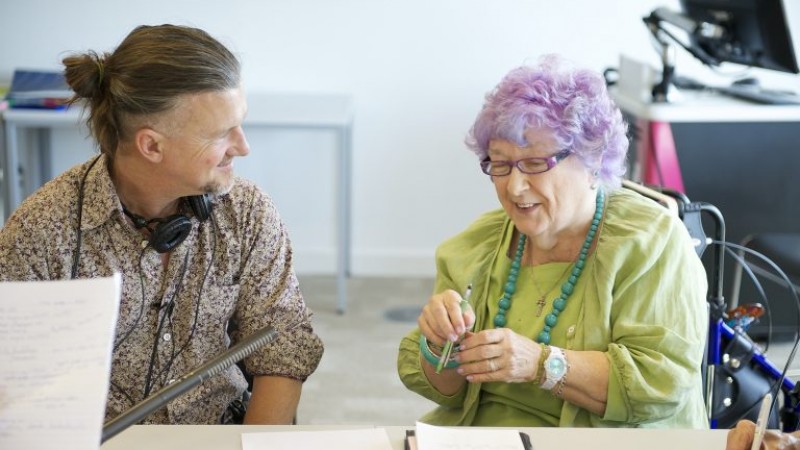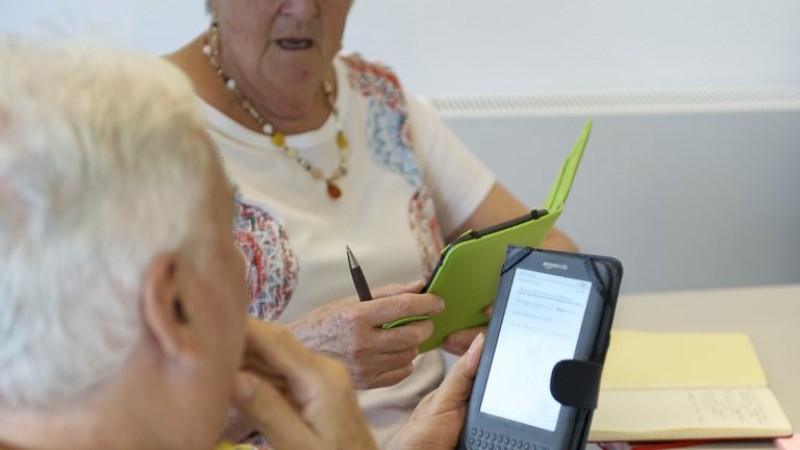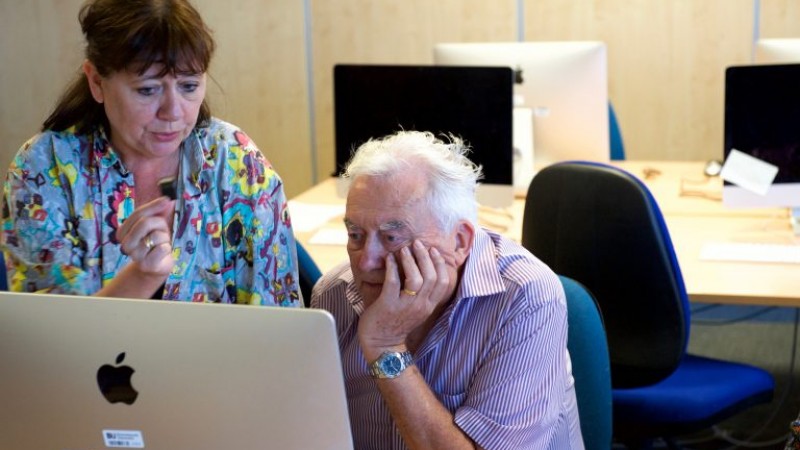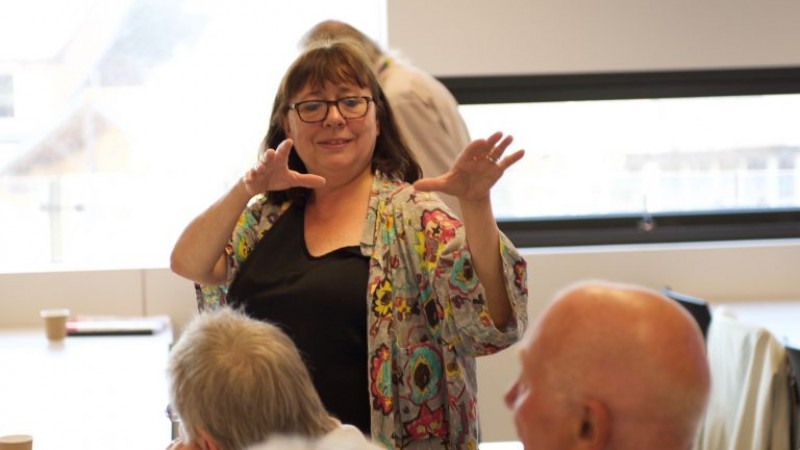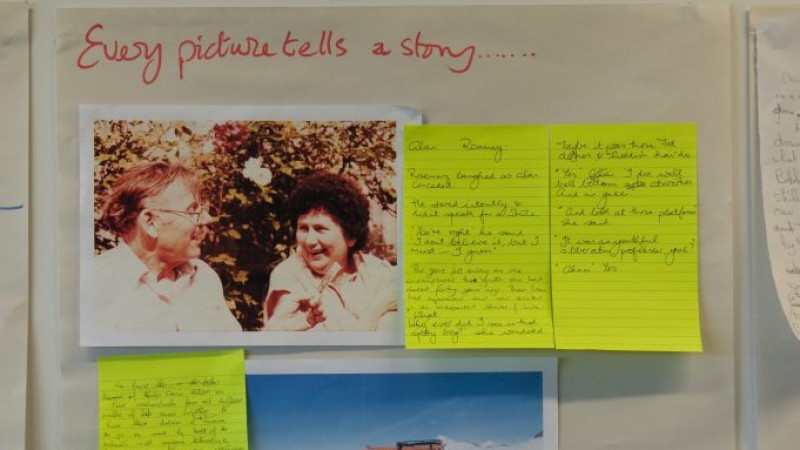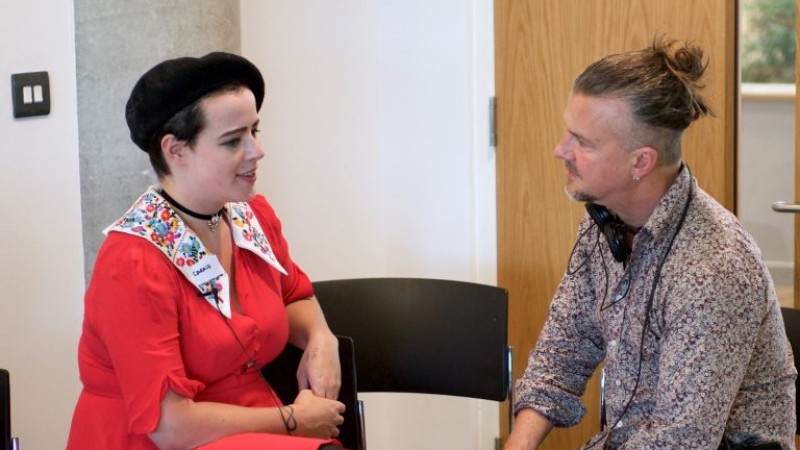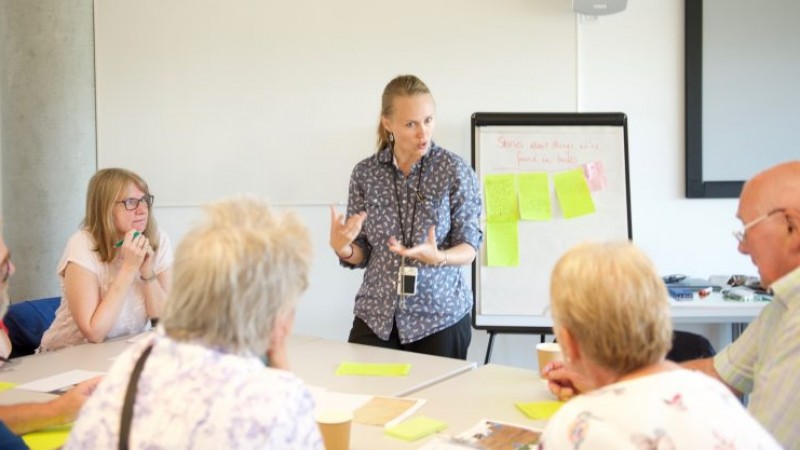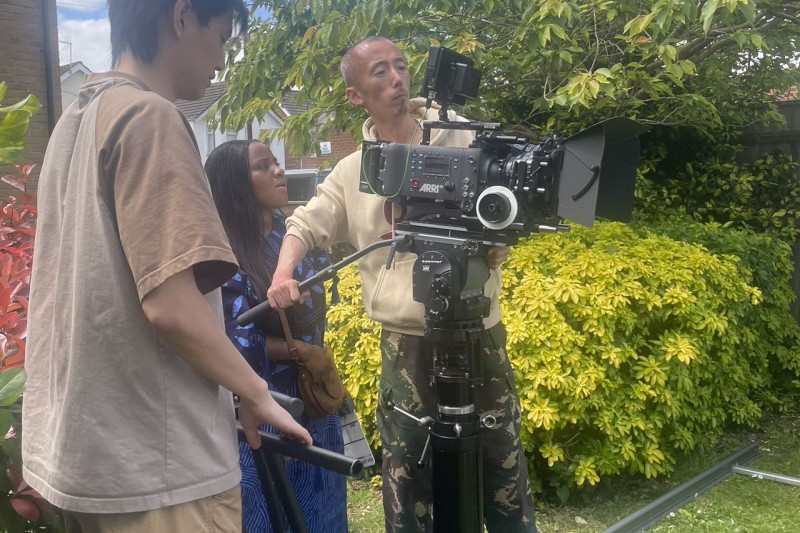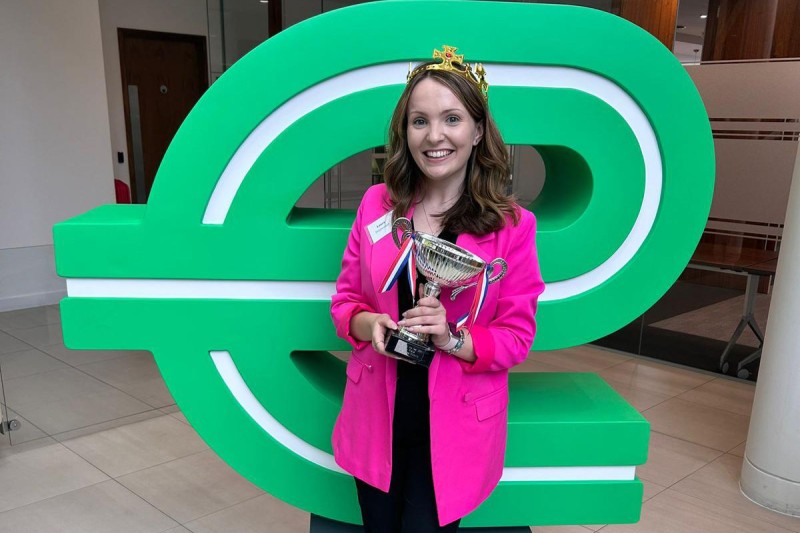BU’s most recent project in this area, Reading on Screen, had a profound impact on many of the participants. It was not only a new experience in which they embraced digital technologies to showcase their relationship with reading, but also an opportunity to bring to the fore some powerful messages, including raising the profile of mental health issues.
The project improved the digital literacy skills of the participants (many of whom had little or no experience of using digital technologies), generated a new awareness of reading behaviours and increased public understanding of debates about the fundamental shift from books to digital reading devices through public exhibitions, the project blog and social media.
It has attracted attention internationally and in December 2017 was featured in a Festival of Reading at the monumental De Krook library in Belgium.
The Reading on Screen story
Funded by the Arts and Humanities Research Council (AHRC) and led by BU's Professor Bronwen Thomas, the Reading on Screen project captured the reading experiences of 30 individuals, aged from 17–86 and from a variety of social backgrounds, making the transition from print to screen through the creation of a series of videos.
The project was in collaboration with a number of other organisations including the University of Brighton, Sheffield Hallam University, The Reading Agency (a charity dedicated to inspiring people to read more) and DigiTales (experts in digital storytelling).
The project team worked closely with DigiTales to host workshops for the participants in Bournemouth, Brighton and Sheffield. The participants learnt how to script, record and edit the audio of their story, adding props and visuals. Each of the three workshops had a different theme:
- Mobility and access in relation to reading (Bournemouth)
- Shared reading (Brighton)
- Forms of reading (Sheffield)
All of the participants were encouraged to showcase their own unique story within these themes, whatever the inspiration might be – for example an object, a personal or shared experience, a conversation or a long-lost photograph.
Gail Aldwin
Bournemouth workshop participant
The Reading on Screen workshop allowed me to tell the story of my reading history, from a non-reading child to an adult reader with a passion for writing. I learnt an enormous amount by being involved with the process.
Workshop participant
It was an absolutely fantastic and incredibly rewarding experience. Over the three days I learnt a lot, in particular how to use difference types of film equipment. I can now move on in my film-making journey.
Once the digital stories had been created, the participants presented them to their groups. For some, this also led to a new-found confidence in presenting and public speaking.
Each workshop was followed by a screening open to the general public, and at the end of the project a public exhibition took place at the University of Brighton. In addition, screenings have been held at the Brighton Digital Festival and Bournemouth University’s Festival of Learning. In 2018, an exhibition was set up at Brighton’s Jubilee Library where members of the public were able to view the stories, read about the project and leave comments.
The power of reading
‘A Journey of a Thousand Miles’ by Kit Pearce
The power of reading, whether in print or on screen, really does ring true in Kit Pearce’s story. Inspired by the line “A journey of a thousand miles starts with one step” from the famous Chinese text ‘Tao Te Ching’, Kit tells how walking regularly has changed his life. It has helped with his depression and inspired him to become a group walking volunteer.
Reading Roadshow participant
At BU’s Festival of Learning on Kit Pearce’s story
Kit’s film about walking for improved mental health is so very valuable. To be able to walk with people who have depression and other mental health illnesses shows that little by little, step by step, things can get better.
The Reading on Screen playlist
Creating more digital stories
Building on their confidence, inspiration and practical skills, some of the Reading on Screen participants have gone on to create digital storytelling projects of their own.
For example, in addition to his film, Kit created a story for children, Who is Foo?, with illustrations from his niece, Emily Webster. He took this to his local library and it was successfully included in the library’s ‘Storytime’ section.
Who is Foo Two
Sara, a participant from the Sheffield workshop, created a digital story about her dream library – solely on her iPhone. Sara also used images from Pinterest to help imagine the library and incorporated this into the video, successfully balancing stills with audio and movement.
Sara's story
Where it all started
The Reading on Screen project builds on two previous projects on digital reading based at Bournemouth University and funded by the AHRC, Researching Readers Online and Digital Reading Network. Taking place from 2012–2014, these established BU as an international centre for research on digital reading.
Both projects sought to engage with readers in face-to-face and online environments, using a variety of research methods to spark discussions about their reading habits. One of the main conclusions of the research was that the lived experiences of readers, so diverse and often contradictory, is something that data is unable to capture. The research also highlighted the need to find a creative approach to capture the complexity of reading experiences – hence the evolution of Reading on Screen.
Reading on Screen has provided a fascinating insight into how our experiences of reading can affect and shape our lives – particularly as the nature of those experiences evolves through different digital technologies.
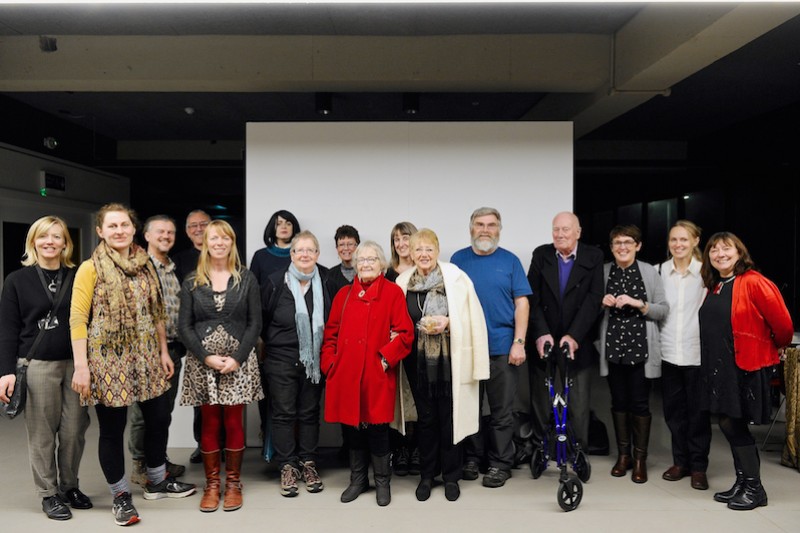 Reading on Screen participants at the exhibition
Reading on Screen participants at the exhibition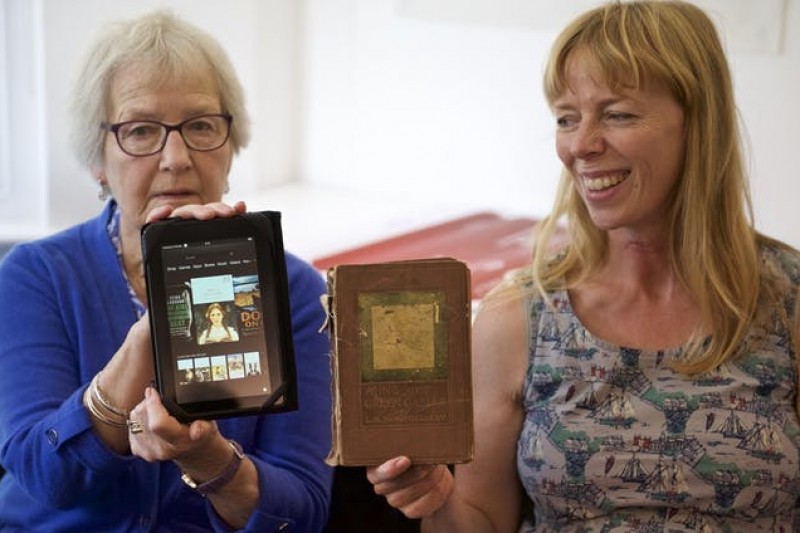 Barbara and Jenni Creswell reading Anne of Green Gables in both print and e-book format
Barbara and Jenni Creswell reading Anne of Green Gables in both print and e-book format